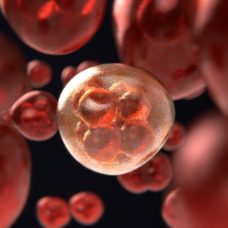Scientists at the University of Basel in Switzerland developed a new cancer treatment that successfully stopped breast cancer cells from spreading. Instead of destroying the harmful cells, the therapy turned them into fat cells.
In their study published in the journal Cancer Cell, the researchers detailed how they developed the treatment by exploiting the weird pathway that metastasizing cancer cells have.
Called epithelial-mesenchymal transition (EMT), this critical phase enabled the team to turn the breast cancer cells in their mouse models to harmless fats.
Gerhard Christofori, the first author of the study and a professor of biochemistry, said:
“The breast cancer cells that underwent an EMT not only differentiated into fat cells, but also completely stopped proliferating. As far as we can tell from long-term culture experiments, the cancer cells-turned-fat cells remain fat cells and do not revert back to breast cancer cells.” –
New Cancer Treatment to Stop Cancer Cells From Spreading
According to BreastCancer.Org, about 1 in every 8 women in the United States can develop breast cancer throughout their lifetime. This year alone, over 250,000 new cases of invasive breast cancer are expected to be diagnosed in American women.
Breast cancer is the most commonly occurring cancer in women, and the second most common cancer in general. Last year, the World Cancer Research Fund recorded over two million new cases of breast cancer globally.
Unfortunately, researchers still haven’t found a cure for breast cancer — or any cancer for that matter. That’s despite the current advancements in medical research.
But now, this new cancer treatment could take us a step closer to finding a permanent cure for this deadly disease.
Christofori noted that cancer cells going through EMT or its counterpart, the mesenchymal-epithelial transition (MET), are good targets for drug treatment. It appears that cells undergoing EMT or MET enter a highly mutable state, giving scientists a therapeutic targeting opportunity.
The researchers tested their theory by giving their mouse models for metastatic breast cancer doses of two FDA-approved drugs. To their surprise, the cancer cells turned into fat cells.
The drugs — one cancer inhibitor and one anti-diabetic — also stopped the growth of primary tumors, preventing them from metastasizing throughout the rodents’ bodies.
The team believes that turning the cancer cells into fat cells depletes their capability to resist chemotherapy treatment. Christofori and his team are now planning to test their EMT-targeted differentiation approach with other types of cancer.



















Comments (0)
Most Recent